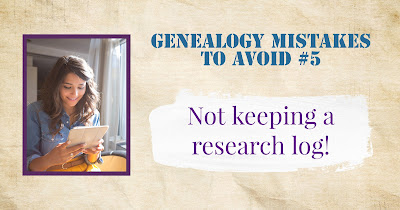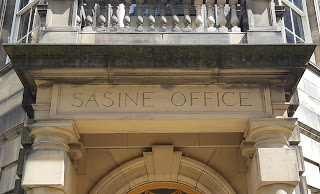Today we have another story from John B. Drylie’s book, “Worthies of Dumfriesshire”
"Poor Robbie Collins, who was known far and near as a vendor of stationery and smallwares, was buried in Troqueer Churchyard in March 1830. Although he had no secret hoard like Wull Steenie [I will tell you more about Wull in another post], his books and clothes, when turned into money after his death, sufficed to lay his head decently in the grave, even to leave a balance, which was handed to the treasurer of the Kirk session, so that in one respect he was on a par with miser Wull, and though a pauper himself, he left a legacy to the poor.
Robbie was a native of Ayrshire, and at one time in his varied and chequered career he taught a small school in some Highland island. He was short of stature, lame of a leg, blind of an eye, and decrepit in mind as well as in body, and it was said that he had a "spice of the knave in him as well as the fool." He migrated to Dumfries about the year 1813, at which time he was possessed of only a few shillings. Gradually acquiring credit, however, with booksellers and other tradespeople, he traded his way so successfully that he at last grew rich, at least comparatively for a man of his grade, and he was able to deposit in the parish bank a sum little short of £70. His "round" was travelled very cheaply. Although most extensive, he visited many thousands of people in the east as well as the south of Scotland, and there were few who grudged him a bed or a meal; indeed there were many who patronised Robbie when they could have purchased more cheaply elsewhere. Robbie had a fawning, winning manner, and as a "character" he was favoured by the rich as well as by the poor.

As times prospered the box slung behind his back was exchanged for a pair of panniers, which, when filled with smallware, were mounted on a donkey's back, and Robbie, who had limped many a weary mile, thenceforward made his rounds more at his ease, and indeed quite like "the gentleman." By some means or other he fastened a printed label in verse on the donkey's forehead, which served for a sign wherever he went, by intimating the owner's name and occupation, and enumerating the various articles he had for sale.
Robbie had many a sore contest with his cuddy, which he designated as "a dour, thrawn, contrary beast," and though he frequently tried to reason with it in set speeches by the wayside, his eloquence was entirely thrown away. Nothing, however, could disabuse Robbie's mind of the notion that the ass understood every word he said. and as he was an enemy to every form of corporal punishment, he endeavoured by gentle and lenient means to train it in the way that cuddies should go. But, like many other reformers, even of the present day, his plans were too Utopian, and in the end he procured a cudgel, and discovered that this argument was the only sort of logic fitted to make an impression on the long-eared tribe.
Robbie's success in some measure "turned his head." Tired of wandering, nothing would serve him but a little shop, and ultimately he secured one in Church Place, Dumfries. This he furnished with all sorts of small gear under the sun, and, as he had the capital to begin with, he obtained plenty of credit. His arrangements being completed, he sent for the cuddy, got it hoisted up the stair of the shop, and then desired the wondering beast to look round on all the grandeur and tell him "what it thought of Collins now?" The speculation, unfortunately, failed, and, but for the kindness of a benevolent gentleman who allowed him a pension of six shillings per week for many years, he would have been reduced to the greatest penury and distress. Thus secured, however, he made long sweeps east and north, and was as well known in Edinburgh as he was in Dumfries. At one time he contemplated visiting France, and talked of drawing his pension on the other side of the Channel, and spending his days tranquilly in some sequestered corner of the finer climates of the south, and where, as he said, provisions were cheap, and the taxes a trifle.













